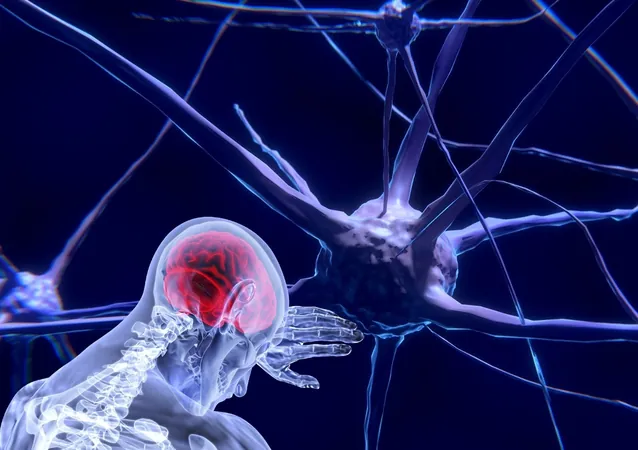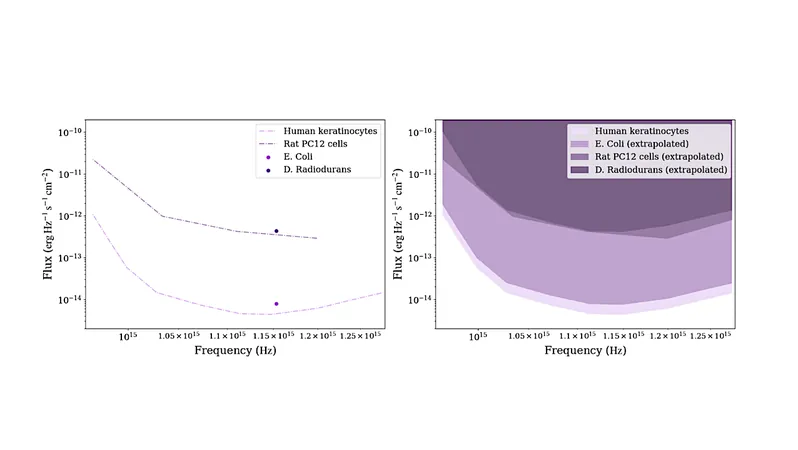
Groundbreaking Study Reveals AI Outperforms Neuroscience Experts in Predicting Research Outcomes!
2024-11-27
Author: Rajesh
Introduction
In an eye-opening research study led by University College London (UCL), large language models (LLMs), a cutting-edge form of artificial intelligence, have been shown to predict the results of proposed neuroscience studies with astonishing accuracy—exceeding even that of seasoned human experts. Published in the esteemed journal *Nature Human Behaviour*, these findings suggest that AI could revolutionize scientific research as we know it.
The Research Findings
The UCL researchers identified that LLMs, trained on expansive datasets of scientific literature, have the capability to recognize and analyze patterns, enabling them to forecast scientific outcomes accurately. The implications of this research are monumental, indicating a potential shift in how studies are designed and executed, moving from time-consuming trial and error procedures to faster, more efficient predictive modeling.
Dr. Ken Luo's Insights
Dr. Ken Luo, the lead author from UCL's Psychology & Language Sciences department, emphasized the novelty of their approach by stating, "While much of the focus around generative AI has been on their ability to retrieve information, our investigation sought to see if these models could instead synthesize knowledge to anticipate future results. Given the resources required for rigorous experiments, being able to predict outcomes could expedite our progress in neuroscience significantly."
The BrainBench Tool
To test this hypothesis, the team created a unique tool called BrainBench. This tool involved pairs of neuroscience study abstracts—one representing real results and the other featuring plausible but fabricated outcomes—allowing researchers to evaluate whether the LLMs could distinguish the authentic studies from the modified versions.
AI Vs Human Experts
The results were telling: the AI outperformed human experts, achieving an impressive 81% accuracy compared to the human experts' 63%. Even when the analysis was narrowed to only the most qualified neuroscientists, the AI maintained its lead with an enhanced result of 66%. Moreover, the study revealed that LLMs exhibiting higher confidence levels in their predictions were even more accurate, suggesting a future where human researchers could collaborate effectively with AI systems.
BrainGPT's Specialization
In a further development, the researchers adapted a specific LLM, known as BrainGPT, to focus solely on neuroscience literature. By honing in on this specialized area, BrainGPT achieved an even higher prediction accuracy of 86%, improving upon the general-purpose version of the model.
Professor Bradley Love's Remarks
Professor Bradley Love, a senior author of the study, remarked on the impactful results: "We suspect it's only a matter of time before scientists harness AI tools to design optimal experiments tailored to their research questions. Although our study is centered on neuroscience, the methodology we employed can be generalized across various scientific disciplines."
Implications for Scientific Inquiry
This research raises crucial questions about the nature of scientific inquiry. Dr. Luo noted, "The effectiveness of LLMs in predicting outcomes indicates that much of current scientific research may adhere more closely to established patterns than previously recognized. It provokes us to ponder whether the scientific community is being sufficiently innovative and adventurous in their explorations."
Future Plans
With ambitious plans for the future, the researchers aspire to develop AI tools that aid researchers by allowing them to input experimental designs and anticipated outcomes. The AI could then predict the likelihood of different results, enhancing the iterative process and facilitating more informed decision-making in research design.
Collaborative Efforts
Collaborators on this groundbreaking study include institutions such as Cambridge University, Oxford University, the Max Planck Institute for Neurobiology of Behavior in Germany, and several other universities from across the globe, showcasing a truly international effort in advancing the role of AI in science. Buckle up, as this represents just the beginning of AI's transformative potential in the world of research!



 Brasil (PT)
Brasil (PT)
 Canada (EN)
Canada (EN)
 Chile (ES)
Chile (ES)
 España (ES)
España (ES)
 France (FR)
France (FR)
 Hong Kong (EN)
Hong Kong (EN)
 Italia (IT)
Italia (IT)
 日本 (JA)
日本 (JA)
 Magyarország (HU)
Magyarország (HU)
 Norge (NO)
Norge (NO)
 Polska (PL)
Polska (PL)
 Schweiz (DE)
Schweiz (DE)
 Singapore (EN)
Singapore (EN)
 Sverige (SV)
Sverige (SV)
 Suomi (FI)
Suomi (FI)
 Türkiye (TR)
Türkiye (TR)